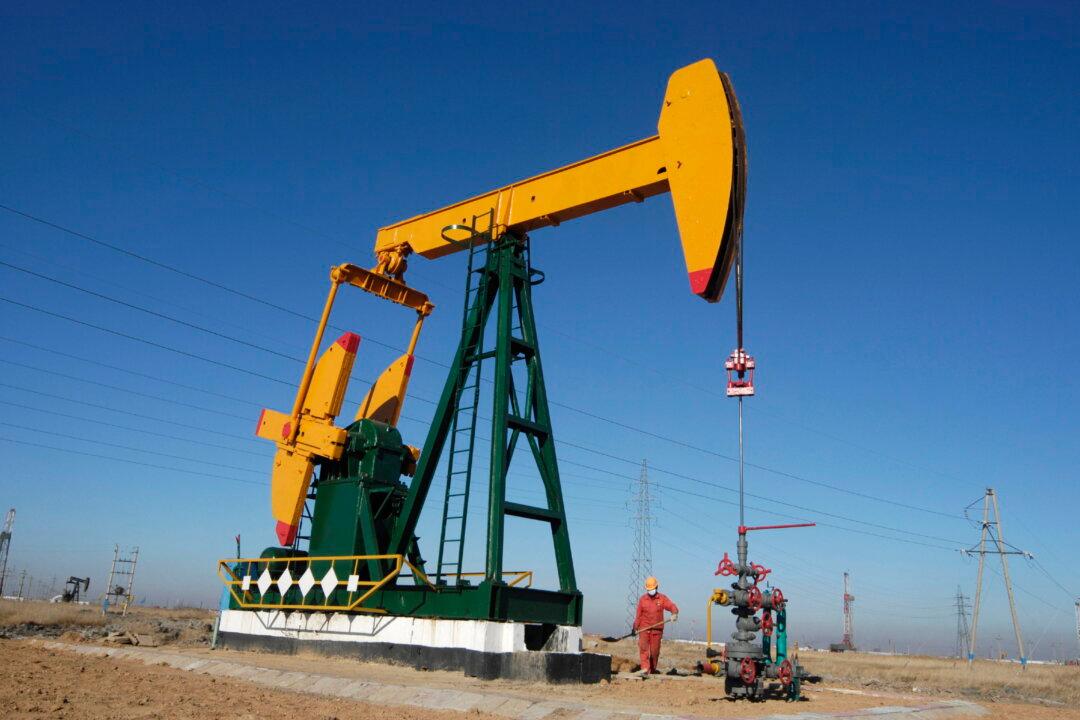LONDON—Oil prices fell on Friday after top crude importer China widened its COVID-19 curbs, though benchmarks were poised for a weekly gain on supply concerns and surprisingly positive economic data.
Brent crude futures dropped 50 cents, or 0.5 percent, to $96.46 a barrel by 1047 GMT, having climbed by 1.3 percent in the previous session. U.S. West Texas Intermediate (WTI) crude futures were down 78 cents, or 0.9 percent, at $88.30.





